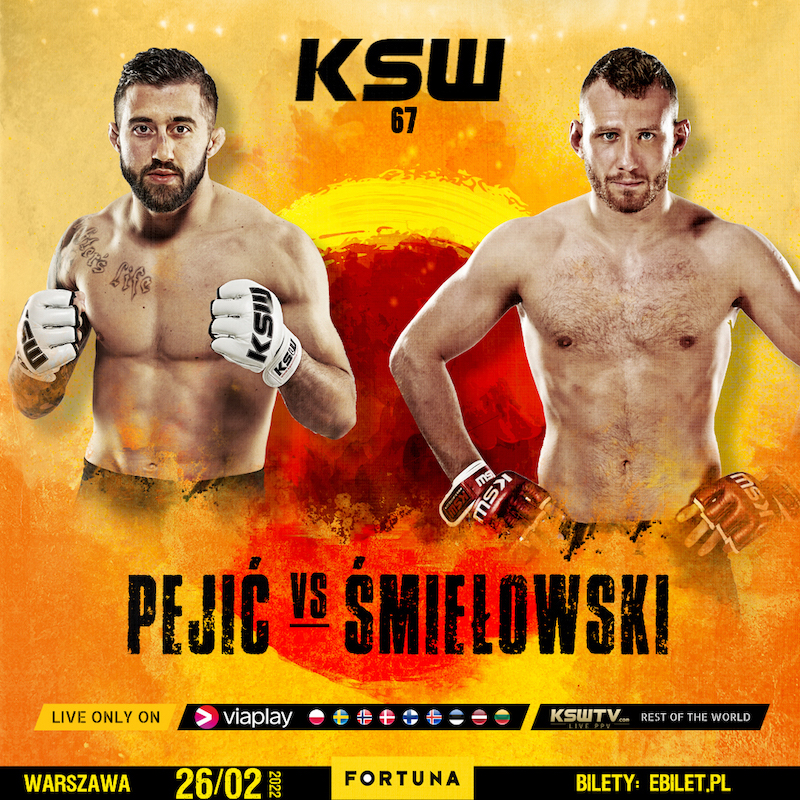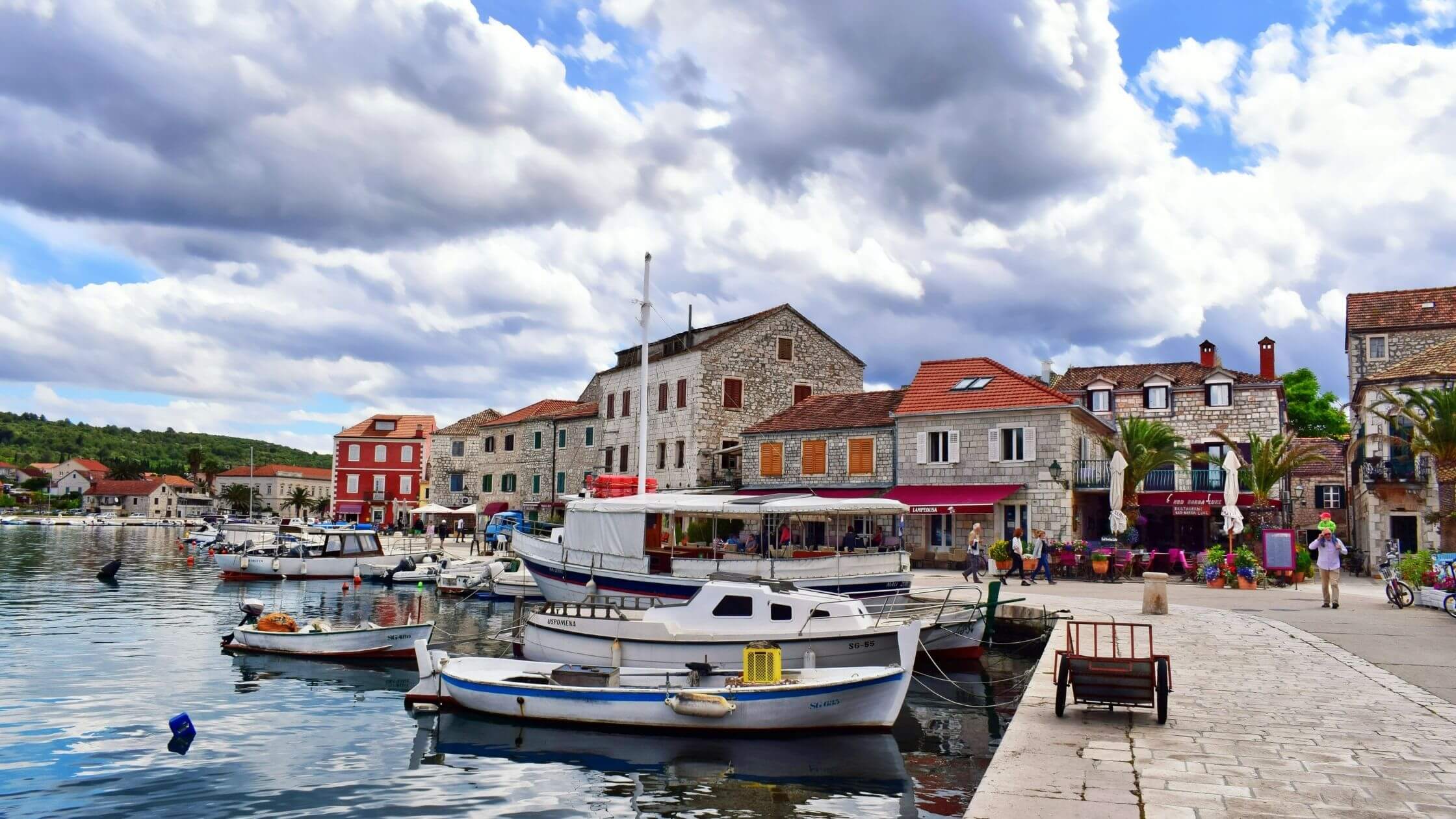Sportening: Luka Modrić Invests in Croatian Sports Social App
February 8, 2022 - Croatia's best football player Luka Modrić has invested in Sportening, a Croatian startup that has attracted a total of 6.4 million EUR investment. With its recently opened office in San Francisco, Sportening wants to position itself alongside the world's leading social networks.
The application has been downloaded by 350,000 users, of which 250,000 were registered, writes Netokracija.
Apart from Luka Modrić, Silicon Valley veterans such as Ralph Ho, the 11th employee of X.com (later PayPal), has invested in Sportening. Support was also expressed by Sean Ellis, author of the book Hacking Growth and responsible for the rapid rise of Dropbox. In addition, Sacha Dragić, the founder of the Superbet group that previously acquired Superology, also invested.
Sportening is a specialized social network that connects sports club fans, allowing them to create fan communities, share content, rate players and other fan activities.
Sportening is the first startup investment for Luka Modrić.
"When I saw how passionate they are at Sportening in wanting to create a platform that connects and creates added value for the fans, I decided to get involved. Unfortunately, stadiums have limited capacity, bars and pubs have recently been closed, and fans cannot achieve a sense of belonging and community in such circumstances. Sportening solves this problem, and my wish with this investment is to at least partially give back to the fans for everything in my career."
Luka is the first official player to join Sportening and will have an official channel. They are currently developing user profiles that will be useful for everyone on the platform, especially content creators/influencers and players. Creators will create fan player ratings, lineup predictors, videos, gifs, texts, polls, and Q&A.
Ivan Klarić has been active in the Croatian startup scene for ten years. In addition to founding Sportening and Superology, he has supported other entrepreneurs, investing in Good Game, TalentLyft, Stemi, and Fueloyal. Today, he wants to give fans their corner:
"People need sports because of their sense of belonging, community creation, and fun. Unfortunately, fans have been ignored on the internet, and it was unacceptable for us that the world’s largest community gathered around its sports teams has no place of its own. We want to solve this problem with Sportening and ensure that the fans have their platform. Luka's support comes at the best time."
Sportening gathered a team of over 50 people in Zagreb in just over a year, including returnees from large technology companies such as Google. They currently have offices in Zagreb and San Francisco and plan to soon open an office in London.
Sportening is available through the Google Play, App Store, and Huawei AppGallery platforms, and in addition to clubs from the top five leagues, the app is also open to fans of HNL clubs.
You can learn more about Sportening on its official website.
To read more about sport in Croatia, follow TCN’s dedicated page.
Waiting Lists for Specialist Examinations Shorter Than Ever
ZAGREB, 8 Feb 2022 - Periodic cancellation of non-emergency and non-essential medical procedures and the exclusive admission of emergency and cancer patients during the coronavirus crisis have become a common hospital practice in Croatia, but in spite of that, waiting lists for specialist examinations have never been shorter.
According to the Jutarnji List daily issue of Tuesday, those waiting lists still exist but the wait period for a specialist examination in a hospital has become shorter.
In the pre-pandemic year 2019, a patient had to wait for an ergometric test in Zagreb's Sisters of Charity Hospital for 260 days, while the current waiting time is 160 days. In the General Hospital in Bjelovar the waiting time for the same procedure was 402 days in 2019 while now it is 201 days.
In the Požega General Hospital patients have to wait two months for an ergometric test, while in 2019 the waiting time was 464 days. Gastroscopy is available in three days, while the previous waiting time was 76 days on average.
The situation is similar in the hospitals in Našice and Koprivnica.
Davor Vagić, director of Zagreb's Sisters of Charity Hospital, believes the shorter waiting time has to do with several factors and the actual situation will be known only after the coronavirus crisis.
"It is a fact that we have shorter waiting lists and that we have been working continually on it. We have also done some work reorganisation and we have not reduced the number of examinations. But it is too early to say what the real reason for shorter waiting lists is. It is possible that some patients do not register for specialist examinations due to the epidemic," Vagić said.
Jasna Karačić of the Association for the Promotion of Patient Rights, believes that time will show that the situation with public health is not better but is actually worse.
Studenac Acquires Pemo, Becoming Largest Croatian Retail Chain
February 8, 2022 – Studenac d.o.o. agreed to buy 100% of Pemo d.o.o., the most respected retail brand in the Dubrovnik region, becoming the largest Croatian retail chain by number of stores and solidifying its position as a leader in the Adriatic region.
The acquisition, whose value was not disclosed, will add nearly 40 stores to Studenac’s network, bringing the total to almost 750. Pemo’s 300 employees in Dubrovnik-Neretva County will join more than 3,700 already working at Omiš-based Studenac. The deal has already received all necessary regulatory approvals.
The takeover builds on Studenac’s successful history of acquisitions of competitors, including Istarski Supermarketi and Sonik in 2019 and last year’s takeover of rival Bure Trgovina, as well as organic expansion to the Croatian capital, Zagreb. From its home base on the Dalmatian coast, where it serves local residents and tourists, Studenac is continuing to roll out its innovative format across the country, bringing best practices from global convenience leaders to the local market.
“Becoming the largest retail chain in Croatia is testimony to the hard work of the Studenac team and proof that we’ve found a winning formula for 21st-century convenience retail,” said Studenac CEO Michal Senczuk. “We’re pressing forward down the path of growth, and this acquisition is yet more evidence of our determination to succeed.”
Founded in 1991, Studenac gradually expanded its wholesale and retail network over the next three decades, reaching 380 stores in 2018. Growth accelerated after the takeover of the company that year by private equity fund Enterprise Investors, which spurred investment in acquisitions, a revamp of the stores’ format and the launch of new products and services.
“We have invested over €250 million in Croatia’s grocery retail sector and this is not our last word,” said Enterprise Investors partner Michał Kędzia, responsible for the fund’s investment into Studenac. “We are delighted with the results attained by Michal
Senczuk and his team and we are convinced the company will keep growing in the years to come.”
“We look forward to welcoming Pemo’s outstanding team into the Studenac family and offering them new opportunities for career development,” Senczuk added. “Pemo has a tradition almost as long as our own, and we aim to preserve and nurture the values that the company presents to its customers, while adding new products and services to deliver an even more pleasant shopping experience.”
For more, check out our business section.
Ivan Erslan & Filip Pejic Return at KSW 67
February 8, 2022 - Croatia's Ivan Erslan (11-1) and Filip 'Nitro' Pejić (15-6-2) will be back in action at KSW 67 in Warsaw on February 26.
Erslan will take on the undefeated Hasan Mezhiev (12-0) of Latvia in what is a very important fight in the KSW light heavyweight division. The 30-year-old challenged for the title at KSW 56 but lost to then-champion Tomasz Narkun. He has since bounced back with two stoppage wins in a row and could be back in the title picture with a win at KSW 67. Mezhiev will be making his promotional debut and arrives as one of the top light heavyweights in Europe.

Joining Erslan on the KSW 67 fight card is his ATT Zagreb teammate Filip Pejić. The man known as 'Nitro', due to his exciting fighting style, steps in to face Poland's Dawid Śmiełowski (8-0). Pejić has become a fan favourite in KSW since joining the promotion in 2019 and has been involved in some of the most thrilling fights in the promotion in recent years. However, the 29-year-old will need to be in top form for KSW 67 as he welcomes the debuting Dawid Śmiełowski, one of Poland's top prospects.

KSW 67 will be headlined by a heavyweight title fight between champion Phil De Fries (20-6) and Serbia's Darko Stošić (16-4) and will be available to watch for Croatian & Balkan fans live on www.KSWTV.com.

KSW, or Konfrontacja Sztuk Walki, is the premier mixed martial arts organization in Poland and one of the leading MMA organizations in Europe, founded back in 2004. Many KSW fighters have signed on to globally known promotions such as the UFC, making the organization an admirable stepping stone to the world's biggest stage.
The best of luck to our Croatian mixed martial arts fighters at the next KSW! All info can be found on the official website www.KSWTV.com.
To read more about sport in Croatia, follow TCN’s dedicated page.
Croatian Bureaucracy for Non-EU Nationals: 5 Things I Wish I’d Known
February 8, 2022 - So, how does Croatian bureaucracy for non-EU nationals look? Lyn Church shares her first-hand experience.
Croatian bureaucracy is notorious for being a frustrating, anxiety-riddled process, where your confidence from reading countless “how-to” guides evaporates the moment you come face-to-face with any government official.
I'm sharing 5 pieces of advice that I wish someone had shared with me when we embarked on this journey.
Rather than a definitive “guide-to-something”, I hope it helps you better understand what you can come to expect as a 3rd country national when you undertake a bureaucratic process in Croatia.
1. Bureaucracy everywhere is tedious
If you think paperwork in Croatia is the absolute worst, the broader reality is that this pain point is not specific to Croatia. Bureaucracy, in general, is challenging, more so if you’re going through the process outside your home country, or in an unfamiliar language.
For instance, the time when I had to resubmit my Permanent Residency application to Immigration and Citizenship Canada. After months of collecting the voluminous documents needed for the application, they rolled out an entirely new system with new forms and requirements.
Or, when Parisian officials misplaced all my documents for l'Assurance Maladie after waiting 6 months, having to resend the entire dossier, before waiting another year to receive the equivalent of an HZZO card.
Even Sweden, so bureaucratically efficient you can file taxes via SMS, was prone to the occasional hiccup. Opening a bank account without a personal number (‘Personnummer’) was impossible, but at the same time, needing a bank account for a personal number was a wild game of chicken and egg.

Image: Pexels
2. Official information is often interpreted and executed independently from what’s written
Long story short, you can read, analyze, cite these regulations all you want down to the very letter, and still have things not go as planned.
Here’s one example from when we moved. According to MUP, I may be granted Temporary Residence under family reunification, “only if (my spouse) has had a continuous temporary residence permit for at least one year”.
Essentially, we had to live apart until his 1-year work anniversary in order to meet this requirement. Fast forward 11 months, we made the application and were subsequently told by officials that my spouse, as the main applicant, had to have been working for not one, but two years.
Fortunately, this was eventually resolved with some elbow grease, lots of patience, and a dear friend who doubled as a translator, but that’s a story for another day.
3. Seek anecdotal advice
Building from the previous point, I believe it’s best to seek advice from those who have successfully (or unsuccessfully) navigated the complex landscape.
Depending on which the most appropriate for your situation, reach out to expats, digital nomads, or retirees via social media groups, blogs, or websites. Don’t be afraid to ask for help!
This way, you get a first-hand account regarding the matter on hand and gain additional insights on living in Croatia in general. The one you’ll hear a lot around here is how Croatia, and Split specifically, is a different world during the Summer and Winter months.
As an added bonus, the services they may recommend (e.g. attorney, accountant, translator) are also more likely to be familiar with your specific situation and requirements involved.
A heads-up though that going the professional services route will not guarantee a positive outcome, nor will it hasten processing times.

Image: Pexels.
4. Be prepared to wait
Processing times will likely vary depending on what visa you’ve applied for but typically, from submission of documents to obtaining your Temporary Residence Card can be around 3-4 months. I’ve even heard of 6–8-month processing times.
Adding to this extended waiting period is that there is no way to track your application progress. A couple of days after submitting all your documents, you may receive an email confirming the application has been received.
Thereafter, it may be a month or more before you hear back from an official.
You can reach out directly to your MUP via phone or email, or through your attorney (who will likely also email or call them on your behalf) but getting a firm response on the progress of your application is unlikely.
The good news is that you’re allowed to stay and travel within Croatia while your Visa application is in process, so take this time to savor and explore.
5. Change happens quickly
Finally, the bureaucratic landscape in Croatia has undergone quite a few changes in the last few years. A process that worked for someone before, may no longer work today and vice versa.
For example, the fact that Croatia introduced a Digital Nomad Visa is a significant way forward for 3rd country nationals to stay for a longer term in Croatia which was not a viable option when we moved in 2018.
On the flip side, even with the first applicant approved in January 2021, there were still numerous uncertainties over what kind of health coverage was needed for applicants, the threshold for proof of income, or whether they would have to pay local taxes.
The requirements for healthcare (i.e. HZZO) were only finalized mid-February 2021, while proof of sufficient income significantly increased between the beginning of February 2021 and the end of February 2021.
That being said, we will always try our best to give you the most accurate, updated information when we can.

Harbour in Croatia. Image: Pexels
It seems difficult, why should we go through with this?
Well, it’s like asking someone, why does (something) make you happy?
It’s such a highly subjective feeling that is an amalgamation of situations, contexts, and interactions that makes life here really gratifying, in spite of the bureaucratic uncertainties.
All I can say is keep an open mind, come, see and experience living here for yourselves.
For more, check out our lifestyle section.
IBF Final Eliminator: Zhang Zhilei Accepts Filip Hrgović Fight!
February 8, 2022 - Croatian boxer Filip Hrgović finally has an opponent in the IBF Final Eliminator as Chinese boxer Zhang Zhilei has accepted his offer
Index.hr reports that Zhang Zhilei has accepted to fight Filip Hrgović. Zhilei, the 12th boxer according to the IBF, has agreed to enter the ring with the undefeated Croat. The best 11 fighters according to the IBF rankings refused to fight Hrgović before him. The offer finally reached the 38-year-old Chinese boxer. The winner of the fight becomes the IBF heavyweight mandatory challenger.
Zhang recorded his 23rd victory in his 24th professional career fight in November. He celebrated against the American Craig Lewis with a break in the second round and called out Hrgović. "As long as you think you're good, come. Hrgović is a young and motivated boxer, but for me, he's a baby," said Zhang, who is nine years older than Hrgović.
"Try to get a little faster because otherwise, it won't be an interesting fight. Just be a little faster. If you are slow as usual, the match will be boring," Hrgović replied.
At the same time as Zhang, the offer was received by Australian boxer Demsey McKean, who is one place ahead of the Chinese boxer. McKean refused to fight Hrgović, and Zhang asked for an additional 24 hours to reconsider and finally accepted the IBF's offer. Recall, before this, Hrogović was rejected by Tony Yoka, Luis Ortiz, and Joseph Parker.
At the end of last year, Hrgović reached his 14th victory in the same number of professional fights.
The winner of this IBF Final Eliminator fight will have the opportunity to box for the IBF champion belt. However, when that will take place is not yet clear because this belt is held by Oleksandr Usik who will fight Joshua first, and then await Tyson Fury, and so on.
Journalist Dan Rafael reports that the fight could take place in Europe as one of the introductory clashes ahead of the title fight between Oleksandr Usyk and Anthony Joshua.
To read more about sport in Croatia, follow TCN’s dedicated page.
Zagreb and Zagreb County Gault & Millau Guide Released for First Time
February 8, 2022 - The Zagreb and Zagreb County Gault & Millau guide has been released for the first time at the initiative of the Zagreb Tourist Board and in cooperation with the Zagreb County Tourist Board.
At the initiative of the Zagreb Tourist Board (TZGZ) and in cooperation with the Zagreb County Tourist Board (TZZŽ), Zagreb and its surroundings received their own edition of one of the most relevant gastronomic guides in the world - Gault & Millau (GM). Thus, for the first time in history, a bilingual (Croatian / English) edition of the guide was published, containing reviews and photos of 100 restaurants, taverns, snack bars, POP bars, and patisseries in Zagreb and the surrounding area, reports Novi List.
The guide was promoted with an awards ceremony for the chefs of the best restaurants in Zagreb. As a result, the Atrium by Filho, Le Bistro, Baltazar, Balon, Tač, Dubravkin put, Bistro Apetit by Marin Rendić, Noel, ManO2, and ManO can be proud of three characteristic chef's hats which suggest they run a high-quality kitchen.
Four caps, or a very high-quality kitchen, was awarded to Zinfandel’s at Esplanade, receiving a 17 out of a possible 20, while at the very top with a respectable 17.5 points is NAV and chef Tvrtko Šakota.
This is the assessment of GM inspectors who visit restaurants undercover, pay for their meals properly and evaluate everything according to GM rules. Šokota of NAV also thanked everyone, primarily colleagues, because, as he said, this is a job that must be loved to do, even at a high level.
"Congratulations to all our caterers who are deservedly included in the first edition of Zagreb, which further valorizes the gastronomic offer of our city. Special congratulations to the 11 award-winning Zagreb chefs, and I believe that their GM ratings and awards will incentivize them to continue striving for excellence in creating the overall gastronomic experience.
Namely, this type of experience is one of the most important motives for the arrival of our guests in Zagreb and its surroundings and the reason for choosing an individual restaurant," said Martina Bienenfeld, director of the Tourist Board.
The Deputy Mayor of the City of Zagreb, Luka Korleat, pointed out that this small but large book shows the Zagreb gastronomic scene in all its diversity.
GM's director for Croatia, Ingrid Badurina Danielsson, pointed out that there are certainly more restaurants that deserve a place in the guide. Still, due to the limited number, they could not be included in this year's selection of the print edition.
"However, they will be presented on the GM website, where the content of the guide for the whole of Croatia is available, and annually records as many as 2.5 million users and six million views," said Badurina Danielsson, noting that the print edition of Gault & Millau Croatia 2022 for the whole Croatia will be published on April 5, 2022.
Gault & Millau was launched in 1965 in France, and today the guide is published in about twenty countries. The yellow labels guarantee quality as GM's motto is "luxury is in quality, not price".
For more, check out our lifestyle section.
22nd Split Marathon Expects 3,000 Runners from 45 Countries
February 8, 2022 - The 22nd Split Marathon is around the corner, with the famous race returning to its standard term at the end of February
This is the largest multidisciplinary event in Split, on which the organization works 365 days a year. Therefore, everything is ready to begin, and only the final permits remain, issued according to the procedure 14 days before the event. It is worth emphasizing that the marathon is in line with the standards of major international races, which involve strict Covid protocol. This magnificent and essential event for the city of Split will take place on February 27.
Dalmacija Danas spoke to Split marathoner Kristijan Sindik, the race director and a member of the Split Marathon organization since 2014. Secondary connoisseurs of this sport will surely remember him for his unique endeavor when he ran seven marathons in seven days. And all to raise funds for the Department of Pediatric Oncology at the University Hospital Center Split, as he is also a former oncology patient.
"After last year's early fall edition, we are back to our standard term. The last Sunday in February is again a holiday of running in Split and this part of Europe. We are also returning to the record numbers from 2020, with about 3,000 participants from 45 countries worldwide. As of this year, the Split Marathon has entered the list of qualifying races for the Wanda Age Group World Championship, which is held in one of the six major world marathons (Tokyo, London, Boston, Berlin, Chicago, New York), which is certainly a big lure for runners from all over the world. We are also growing in terms of quality and speed, so we have secured several elite participants who come from Kenya, Ethiopia, Burundi, Rwanda, Morocco," Sindik said at the beginning of the conversation.
He pointed out the running track:
"It is one of the most beautiful in the world. We had to try and test dozens of other variants before that to get to it. It is a thorough job that requires time, dedication, and above all, education in terms of standards for organizing world marathons. The second guiding thought was to include all important city symbols such as Diocletian's Palace, the Riva, Poljud Stadium, Marjan, Grgur Ninski and to give all our guests a real sports and tourist postcard," he added.
Volunteers build the whole event.
"It is worked on diligently 365 days a year. The organizing committee consists of 14 members and is entirely voluntary. In the last days before the marathon, in operational terms, the number of volunteers exceeds 400. It is important to note that they are local, domestic citizens and our guests from various quarters. However, we will never refuse a couple of hands, so those still interested can still apply on our website," invites Sindik.
"The most difficult was in 2014, when you were not perceived properly by local institutions and when you are working on the legacy of something that was not good or was average. However, from the local race with a maximum of 150 participants, we managed to create a sports brand in the city, breaking stereotypes, raising public awareness, and convincing ourselves and then colleagues that we can make an event that Split, as a city of sports, deserves," says Sindik.
"February is a fickle month in terms of weather, and the only thing we can expect in that regard is - the unexpected. We had anthological snow, which falls once in 7-8 years in Split, and to fall exactly at the start of the marathon in 2018 is to be recounted. We also had a hurricane in 2019, when the President of the Republic of Slovenia, Mr. Borut Pahor, also participated. But we like to say that there is no bad time to run, but only well and poorly prepared organizers."
The Split Marathon is special to Sindik.
"A real marathon is run through the city. From one round, without repetition. So I like to tell my fellow citizens, in all sports, whether they run or do some other sport, to try to run a marathon at least once in their life. So let them decide what to do next. And try it in your city! Because if they manage to overcome the challenges of preparing for the marathon and fight and cross the finish line in the race, it can change lives forever. They will realize that they are ready for some things that they thought were impossible," he said.
Everyone wants to come to Split.
"The best confirmation of the success of the race is when runners return to it every year. Well-known marathoners are not immune to that either. Split is an attractive city, and the race is full of positive energy," concluded Sindik.
To read more about sport in Croatia, follow TCN’s dedicated page.
Will Croatian Restaurants Raise Prices Amid Rising Energy Costs?
February the 8th, 2022 - Will Croatian restaurants be next in line to raise their prices as costs continue to increase in almost all sectors? Some claim they won't, but that answer might not be entirely honest...
As Poslovni Dnevnik writes, just about everything is becoming more and more expensive, and we'll all likely be paying more for holidays this year as well. The Family Accommodation Community, which brings together the owners of the popular ''zimmer frei'' brigade, estimates that prices will rise by an average of 10-20 percent. The head of that association, Marina Nimac Kalcina, is aware of how unpopular such announcements are, but, she says, that's the reality.
''Unfortunately, our economic situation is such that it will be a problem for some Croatian guests, but the season lasts only a few months, the costs are rising, and the hosts have to make a living from something,'' said Nimac Kalcina, revealing that the reservations being made by foreign visitors in January was almost like it was back in pre-pandemic 2019.
''If the coronavirus pandemic doesn't additionally complicate the situation, there are great chances for a good summer tourist season. With almost no interest in the pre-season, most reservations are for the summer months and there are also already some for the post-season. Money isn't as much of a problem for foreign guests, and according to some research, they're ready to spend more on holiday than they did last year. For Croatian guests, it's fortunate that there is a wide range of prices in the family accommodation segment.
Last year, for example, a family of four in Dalmatia could choose an apartment for an average of 70 to 250 euros per day. This summer could be different, but in any case, guests will need from a few euros per day to a few tens of euros more than they did last year. As a rule, hotels are a more expensive option, but they contracted with partners last year on prices for 2022, which are higher by the amount of inflation expected at the time of two to three percent.
Some capacities have already been sold off at their previously published prices. As for the "unsold" beds, all large hotel companies are using so-called revenue management software that changes prices on a daily basis depending on supply and demand, ie the availability of capacity in its own sales,'' explained the director of the Croatian Tourism Association, Veljko Ostojic.
''When it comes to the price of food and beverages in Croatian restaurants and facilities that provide à la carte services, there will definitely be an increase depending on the movement of prices of input materials; groceries, drinks, energy etc. At this moment in time, it's too early to say how much those increases will be, more will be known in the second half of March,'' added Ostojic.
In the hospitality industry, everything is more or less clear. We will pay more for coffee, juices, beer in cafes, and of course, most Croatian restaurants will get new price lists, writes Vecernji list.
According to Nikola Eterovic, president of the National Association of Caterers, each restaurant has its own specific situation, but he also believes that, for example, the coffee we now pay ten kuna for will increase ten to 30 percent, so by one to three kuna, and there is a simple explanation for the fact that some Croatian restaurants are announcing that they will not raise their prices.
''Either they've already done so in the past few months, so now it is a marketing ploy with them saying they aren't going to do it, or they're working against the tide of the economy at the moment. There is no third option there,'' said Eterovic, adding that lower VAT, which is a now very old request of Croatian restaurants and other hospitality and catering facilities, would be of great help to the industry.
For more, check out our business section.
Croatian Products Popular in Foreign Spar Stores in Italy, Hungary...
February the 8th, 2022 - There are quite a few Croatian products which have become much loved by foreign buyers shopping in Spar stores in the nearby European Union (EU) nations of Italy, Hungary and Slovenia.
As Poslovni Dnevnik/Marta Duic writes, the fact that the Spar retail chain is an important partner for domestic producers and the placement of their products on the shelves of many other European Union countries is best evidenced by the fact that despite the global coronavirus pandemic which continued throughout 2021, Croatian products, ie their manufacturers, generated more than 106 million euros in turnover through the Spar sales network alone in the nearby countries of Italy, Austria, Slovenia and Hungary.
The total turnover of Croatian products in Spar stores grew last year as well, which brought domestic producers an increase in revenue of as much as six million euros compared to 2020.
The biggest increase in terms of exports of Croatian products was recorded in Austria, where the first four exporters enjoyed as much as 40 percent higher revenue in 2021 compared to the record year of pre-pandemic 2019.
The data showed that the neighbouring Italians are loyal to Croatian products such as the much loved truffles and white cod, the Hungarians love Croatian ice cream and water, and the Slovenians have discovered Croatian dried meat products under the label Dobro (Good), which is sold by Zito, whose turnover in 2021 was twice as high as it was during the year before.
Although the list of major exporters is still dominated by large Croatian products and their producers such as Atlantic, Podravka, Cromaris, Dukat and Vindija, small producers include lip balms made by Vimi, Dobro and New Bakery, one of the largest European baklava factories, located in Donji Stupnik.
For more on Croatian products, producers, companies and exports, make sure to check out Made in Croatia.


